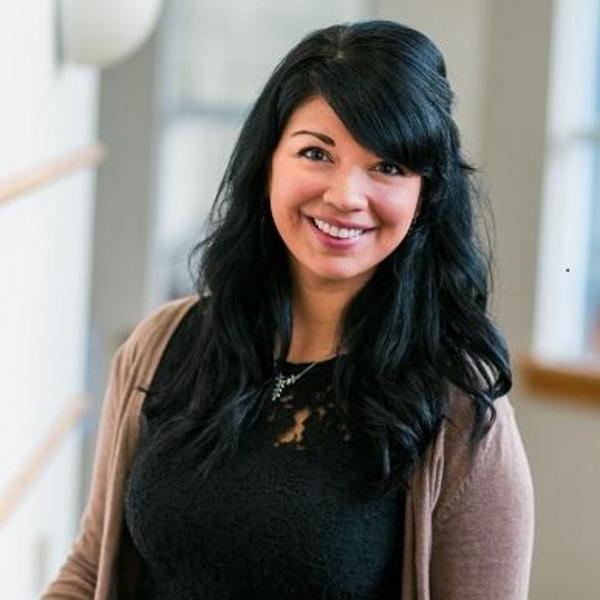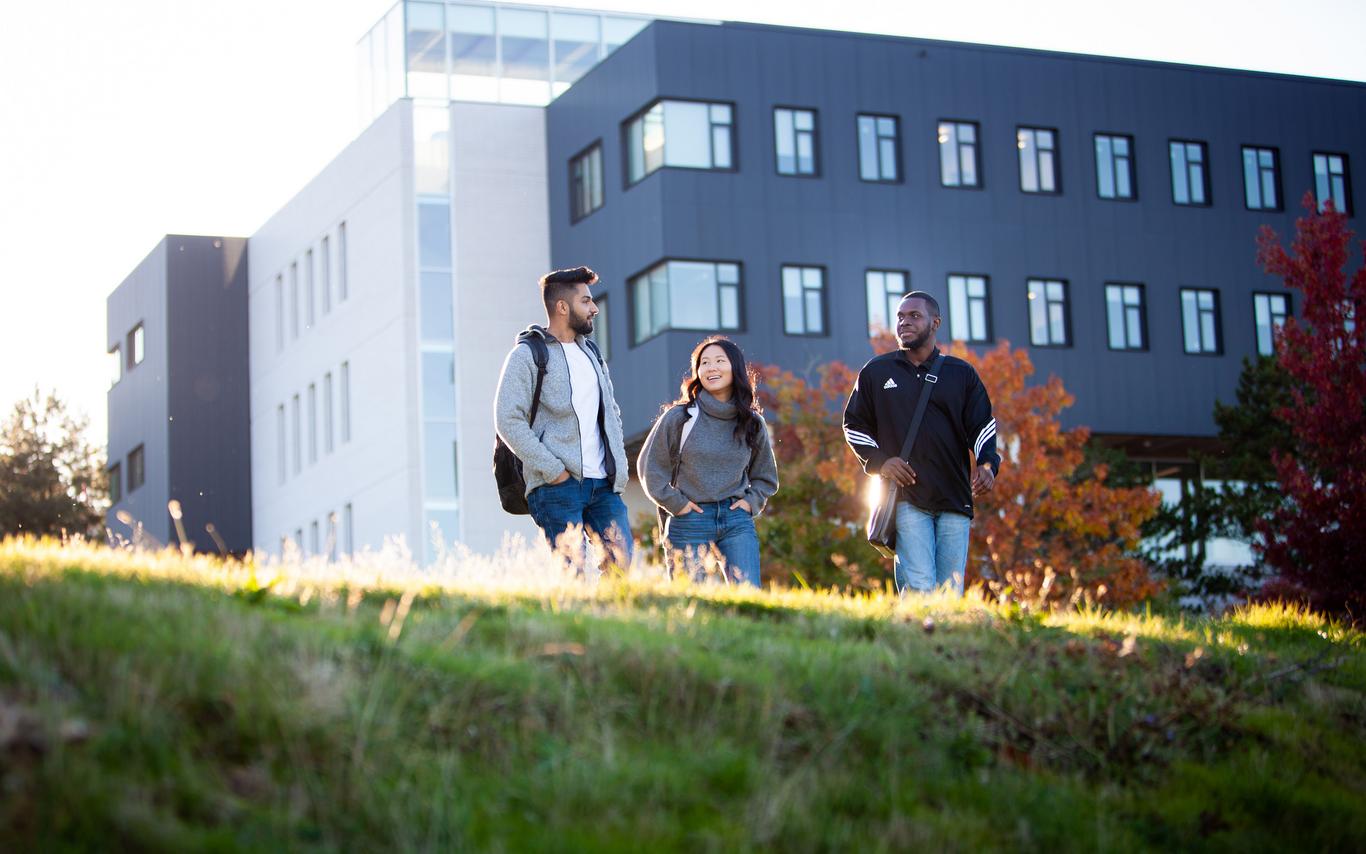Admissions
Admission into the BSW program is competitive and assessed through a number of criteria. These include: fulfillment of admission requirements, past academic performance, suitability for the profession as evidenced within your Personal Profile and volunteer or work experience in the field. To check your academic qualifications for admission, complete a Self-Assessment Form for Admission. Students will be notified of their application status in April.
Evidence of 100 hours work experience (paid and/or volunteer) in a community and/or clinical setting can best be demonstrated by submitting a resume. Your resume will outline your work and/or volunteer history that would include a description of the functions you performed, the time period over which they were performed and where this work and/or volunteer experience took place. It is also helpful to draw upon and integrate what it was you have learned from this experience as you develop your responses to the questions posed in the personal profile. Examples of human service organizations in which previous applicants have volunteered and/or worked included family service, addictions, mental health, women serving, intercultural, Indigenous as well as child and youth serving agencies.
Students who have completed coursework deemed by faculty in the program to be equivalent to the learning outcomes in other courses can receive credit for courses. Non-credit life experience will benefit students in their coursework in the program but not for credit equivalency for courses in the program.
Prior Learning Assessments are available for third-year Field Education Placements.
Upon application to the BSW program students will receive a self-assessment form to evaluate their course credit completion. The completed form must be sent to the VIU Registration Centre at which time this document and your official transcripts will be evaluated. To obtain an idea of course transferability between educational institutions in British Columbia, check the British Columbia Transfer Guide. Course transferability is not necessarily linked to the Transfer Guide.
These courses can be taken online or through in class delivery at any accredited post-secondary educational institution that offers these courses or their equivalencies. Thompson Rivers University offers these courses online, see the links below. (Please note that Thompson Rivers University uses a different course numbering system. The links provided do correspond to the correct courses.)
Post-secondary institutions in British Columbia offering Vancouver Island equivalencies to SOCW 200A and SOCW 200B can also be located in the British Columbia Transfer Guide.
Students from outside of British Columbia will have their course equivalencies evaluated and assessed.
Applications to the program will be accepted without having fully completed all course admission requirements as long as these requirements are completed by August 15.
In the final analysis, whether or not you enter the BSW through the Social Services Diploma route or the non-social Service Diploma route, you must meet the admission requirements to the BSW program. If you take the Social Service Diploma route by completing the Diploma first, it will qualify you for work in various agencies requiring this credential.
Students who have successfully graduated (or are on track to graduate in this coming academic year) from the VIU Social Services Diploma program will be granted 54 credits towards the 60 credits required for application to the BSW program. They will be required to complete an extra 6 credits (with a specific emphasis on arts and humanities and social sciences), assuming they have no prior courses completed. VIU Social Services Diploma graduates will need to ensure that they meet all academic requirements to apply to the BSW including GPA; 2 English courses at C+ or better; and SOCW 200A and 200B at B- or better. Students who graduate from VIU CMHW Certificate Program will be granted up to 21 credits towards the 60 credits required for application to the BSW program.
For SSER diploma students, please contact the Program Chair, Louise Stern at louise.stern@viu.ca for more information.
Students can start the application process by completing an academic self-assessment which speaks to the credits required.* Please note that credits will not officially be assessed by VIU until the student has officially submitted an application.
If you are seeking more information on the admissions criteria and applications, students can do the following:
Students who are not currently enrolled at VIU can speak to one of our recruitment team members at connect@viu.ca
Students who are currently enrolled at VIU can speak to one of our educational advisors at advising@viu.ca
Fees
Please see the Program Calendar for a full breakdown of tuition costs.
As this program is delivered on a cost-recovery basis, tuition will be significantly higher than most courses delivered on campus.
Students should expect to pay a fee of approximately $200 per course for course texts and reading materials. Cost is taken into consideration when texts are selected. Where possible, we use E-books that are accessible through the VIU library and/or we provide readings directly in the course site. Travel costs to Field Education (practica) sites are the responsibility of the student. In addition students will be responsible for other fees such as those associated with Student Union and participation in the completion of criminal record check process.
Format
The BSW is a distance education program in which all social work courses will be delivered fully online using a teaching platform called Desire2Learn. Students will need access to high speed internet in order to make best use of course materials.
Students are required to complete at least 50% of their credits at the degree granting university. Once admitted to the program, students may consult with the Program Chair and Advisor.
Students are able to complete their practicum in their home community. We will work closely with students in accessing practicum placements that match their geographical preferences, but we cannot guarantee your placement will be in or near your preferred community.
Practicum placements consist of 350 hours in both third and fourth year of the BSW program.
Students are required to complete a minimum of 16 hours per week in their practicum placements. Based on 16 hours per week a typical placement is approximately 21 weeks in duration and normally occur between January and May.
In order to meet the needs of both parties, hours and dates of the practicum placement are negotiable between the student and the agency providing the placement (see hours required above).
Students should be prepared to organize their work and family life in such a way as to accommodate the demands of their practicum placement. This may include reducing paid employment hours, or increasing the numbers of hours needed for child care during the placement period.
Students complete a Field Education Placement Request Form where they may indicate their preferred placement location. Every effort is made to fulfill these preferences; however it is not always possible to have first or preferred geographic or practice area of interest placements so it is important to remain flexible.
Each student participating in practicum will complete a Field Education Learning Contract and will meet through evaluation with their Field Education Instructors (in agency) and Faculty Liaison.
Note: Prior Learning Assessments (PLA) are available for third year practicums only (SOCW 380). Students are required to submit an application and a portfolio of learning to move forward in the PLA process and then will completed a directed studies component to fufill the requirements. All students will complete fourth year practicum ( SOCW 480).
Employment Opportunities
Social workers obtain employment in social, educational and health organizations as well as private practice. Social workers assist individuals, families, groups and communities through their work in hospitals, community-based organizations, child welfare agencies, school districts, agencies serving Indigenous people and human rights agencies that promote the interests of those experiencing inequality in our communities. See Social Worker Career Profile for additional potential job opportunities for social workers.
Examples include:
- child welfare
- hospitals
- long term care
- corrections
- mental health and substance use
- case management
- youth and family services
- community development
- social action
Professional Affiliations
Yes. Consistent with the program's interest in promoting excellence in contemporary professional social work practice through peer oversight that ensures high academic and practice standards, the Bachelor of Social Work program at Vancouver Island University is accredited through the Canadian Association for Social Work Education.
Students should consult with their local jurisdiction for provincial or territorial Colleges of Social Work that register Social Workers. For example, the BC College of Social Workers (BCCSW), the Alberta College of Social Workers (ACSW), the Ontario College of Social Workers (OCSWSSW).

The BSW program provided me with the skills necessary to work in the helping profession and was instrumental in providing the tools required to launch my career. It also prepared me to think critically and to authentically engage and build rapport with the clients I work with. The professors were all professionally engaged in their areas of expertise and the practice field. They were able to provide pathways to success for students and to empower them with confidence in their learning and practice. I cannot say enough amazing things about VIU and the BSW program.
